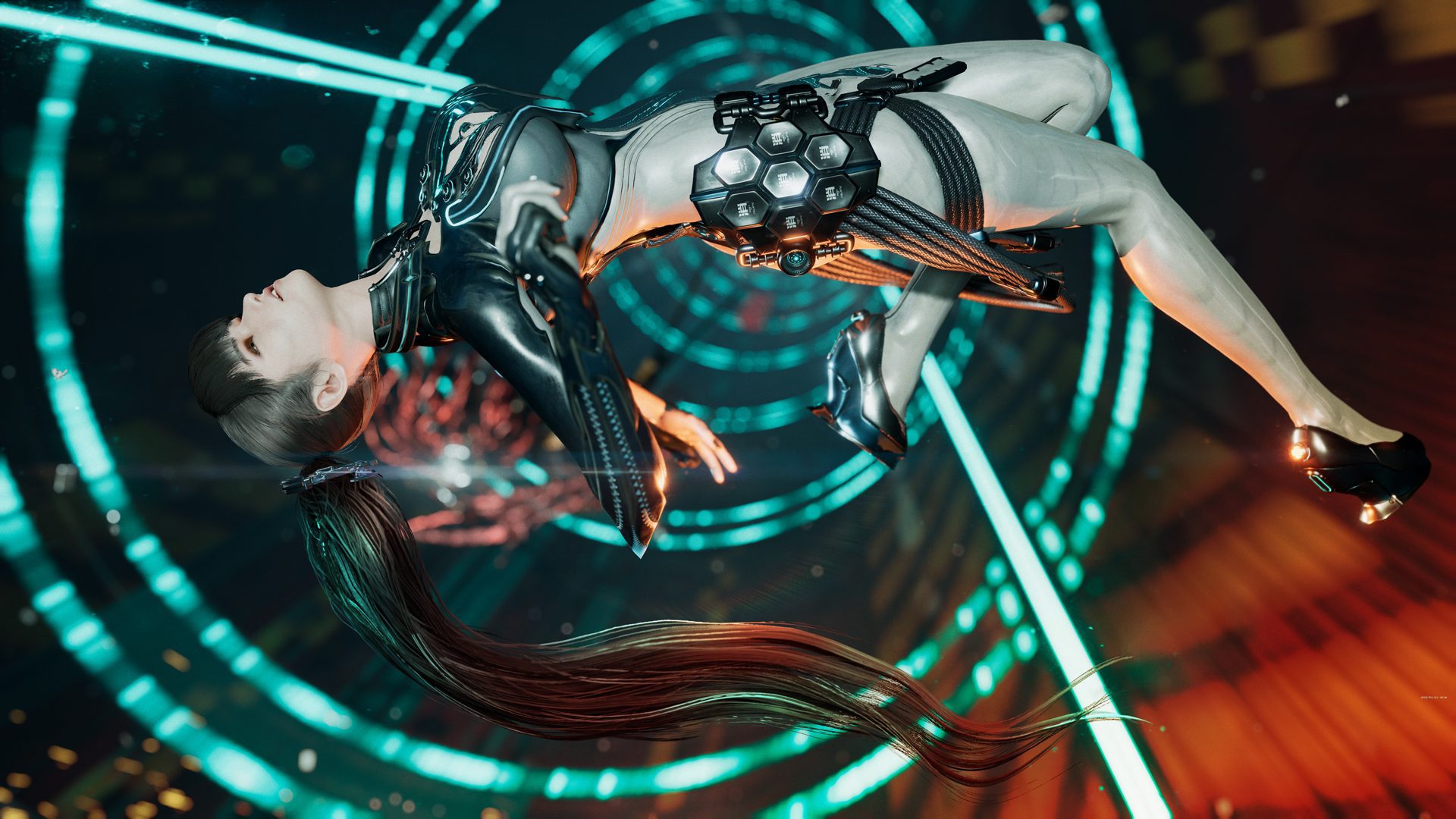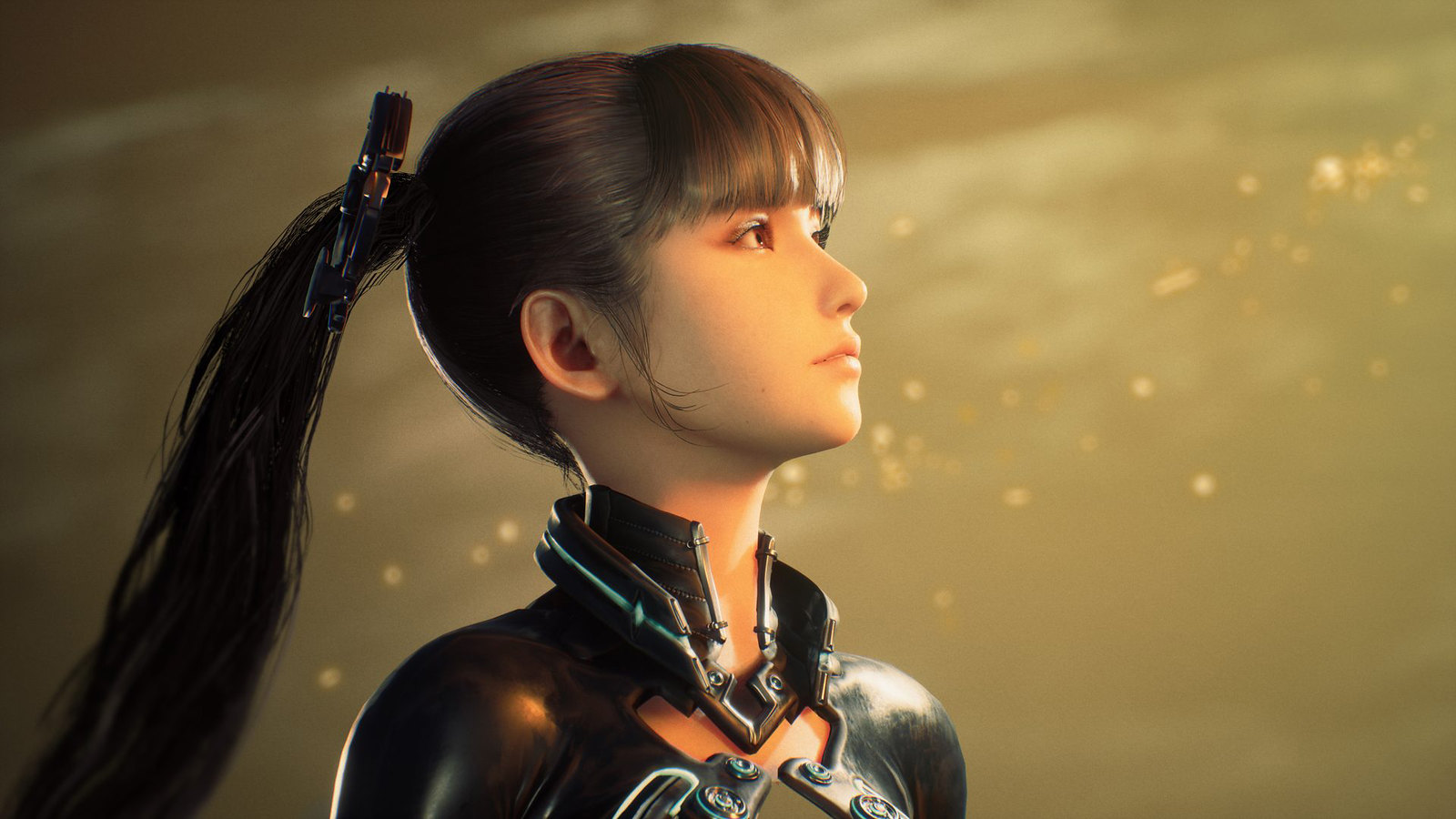nial
Member
Sachie Kobari (PlayStation Blog Japan)
Stellar Blade launches in just a few short weeks on PS5. You may have already sampled the action adventure firsthand by way of the recently released demo in which Eve, a member of the 7th Airborne Squad, is sent to a desolated Earth on a mission to reclaim the planet from the mysterious, malevolent Naytiba and save humankind. If so, you'll have had a taste of the game's mechanics and combat, its story, and creature design. To dig in further, we sat down with Stellar Blade director Kim Hyung Tae (who is also founder of Stellar Blade development studio Shift Up) and technical director Lee Dong Gi to learn more about the studio's background, the game's inspirations and more.
Stellar Blade director, Kim Hyung Tae (left), and technical director, Lee Dong Gi (right) of Shift Up
It all began with a collective passion to create action games for video game consoles
PlayStation Blog: As Stellar Blade is a brand-new title, how and when did the idea of developing this game emerge?
Kim Hyung Tae (Kim): About five years ago, when we were talking about what mobile game title should be released after Destiny Child. We were initially thinking about creating Goddess of Victory: Nikke into a duology game for the Android and iOS platforms. It was during that process that the urge to develop a console title emerged as our second project. I have been a long-time fan of video game consoles and have always wanted to develop action games for them. The idea attracted a group of members with a shared passion, and that's how the idea of developing Stellar Blade emanated.
With Stellar Blade being Shift Up's first title developed for video game consoles, did you encounter new challenges or hurdles?
I am being realistic in thinking our fans would not be lenient and forgiving just because this is our debut title for game consoles. Instead, we held the same high standard that console gamers hold for their games and ensured that Stellar Blade would be on par with those games in terms of quality.
Can you tell us about the concept and theme of Stellar Blade?
The theme I dedicated to Stellar Blade is humanity. The story is about what makes us human and defines us as human–it's quite universal. The story came to my mind one day as I witnessed taxi drivers on strike.
The strike erupted when technologies for self-driving cars began advancing, almost hinting at the implementation of autonomous cars in the near future. This instilled fear among taxi drivers that these technologies would eventually take over and replace their jobs. As I watched them on strike, I asked myself what I would do if this were to happen to me, if one day humans were entirely replaced by something non-human. This is where the theme for Stellar Blade originates. Having said that, the game's focus should not be on that; we tried to create an action adventure game that players can enjoy as they follow Eve's story.
Stellar Blade reimagines the style of '80s and '90s sci-fi
The story takes place on Earth, which is ravaged by unknown creatures. Can you tell us more about the abandoned planet?
We have designed the game so that the backstory of the desolated Earth will reveal itself as the game progresses. The story begins at the point in time after Earth was ravaged by mysterious creatures called Naytiba, leading the decimated human race to flee to an outer space colony. Feeling defeated and tired of life in space, humans decide to battle Naytiba to reclaim their motherland. Players will learn the backstory and the incidents in between as they progress through the game. After discovering the truth, Eve will be faced with a decision and what she chooses is in the players' hands.
No one knows what the Naytibas are, where they came from, or even what they want. This is where Eve comes in: to uncover the mystery surrounding these unknown creatures.
From the last remaining city on Earth, Xion, to the vast wasteland and the great desert beyond, what special attention and consideration went into designing this post-apocalyptic world?
Post-apocalypse has been one of the longest-running genres in the game industry, among many others. So, for us to avoid monotony and make Stellar Blade a unique post-apocalyptic story was a major challenge. However, on the contrary, we wanted to stay away from making it eccentric or including bizarre elements so that it would be different. We decided it was best to reimagine and render the elements from '80s and '90s sci-fi for Stellar Blade.
People have their own vision of what a post-apocalyptic world is like based on what they've envisioned in their heads or seen in movies and such. I'm sure many players will appreciate and admire the details and attention that went into making the post-apocalyptic world in Stellar Blade vivid and realistic. A younger generation of gamers, on the other hand, will probably find our rendition of the post-apocalyptic world quite novel.
Is there any movie in particular that you took inspiration from?
There are quite a few. However, one of the most inspirational, in terms of theme and design, is the sci-fi manga Gunnm by Yukito Kishiro sensei. It was released as an action film in 2019 under the title Alita: Battle Angel. I'd say I took a lot of inspiration from that movie.
The contrast between extinct Earth and Eve from space
Now, let's move on to the main character, Eve. Can you tell us the concept and design that went into creating her?
Kim: Eve is an Airborne Squad member who is sent to Earth from an outer space colony. Despite being an accomplished soldier, there is a cultural disconnect between where she is from and Earth. So, we wanted Eve's design to allude to the incongruity of her surroundings. Take a look at the atmosphere on Earth. It is barren, dry. Its cities are falling apart. A sharp contrast to Eve's athleticism and fluidity.
How about other human characters? What kind of attention went into creating them?
Most of the characters are cyborg-like. To design these characters, we adjust their designs to reflect the available technology. While Eve and their Airborne Squad companions look sophisticated, albeit simple, we gave the survivors of the earth, living in a harsh environment, a minimal, pieced-together look. Although Xion's surviving residents refer to Eve as "Angel," it's also a fact that some begrudge her for her extravagant machines and technologies.
Malevolent Naytiba come in different forms, such as biological or mechanical. Can you tell us about the design and concept that went into designing them?
We focused on giving the Naytiba repulsive and appalling looks. Many have no eyes or have supernumerary body parts, like a face on an odd part of the body, to evoke a sense of uneasiness. Some of the Naytiba can merge with humans and machines, so they take on different appearances.
An action game that is challenging yet fun for everyone
Stylish action is one of the key elements of Steller Blade. Please tell us what you did to achieve the stylish action and also what the highlights of the game are.
We designed the game so everyone can enjoy the action in Steller Blade. But we don't want it to be a game where players simply attack the enemies aggressively and perform combos against them. It's important that players observe the enemies' movements closely and grasp the combat flow to respond appropriately. Skills increase through the skill tree, but equipment such as Exospine and Gear will also further increase them. As each piece of equipment performs differently, players should choose their battle style to be speed-focused, aggressive to overwhelm enemies, or cautious throughout the enemy attack.

The difficulty is set to be challenging to a reasonable extent. As such, players might find themselves needing to go back to defeat bosses. The difficulty can be adjusted during the game, so I encourage players to challenge themselves at a difficulty level they feel comfortable playing. For novice action game players, there is an Action Assist in the Story Mode that I highly recommend they take advantage of.
How exactly does this Action Assist help players?
For example, during crucial moments, such as figuring out the boss's attack pattern for counterattacks, the movement slows down to make it easier to attack. When using a certain UI, the right timing for parrying and dodging will be displayed, making it easier for players to counterattack. This feature makes the game more approachable and enjoyable, even for those who usually steer away from action games. After completing the game, players can also play Hard Mode.
Stellar Blade is said to leverage some of the unique features of the PS5 console hardware, such as adaptive triggers and haptic feedback. What type of experiences can players expect?
Lee Dong Gi (Lee): We harnessed these features to enhance the immersive experience. In certain scenes, haptic feedback allows players to sense the mood and feel the atmosphere surrounding the characters. At the beginning of the game, there's a scene with a drone in which players can fully take advantage of these PS5 features. Apart from that, we've incorporated extensive levels of different adaptive trigger resistance assigned to the type of gun being used.
Is there anything else we didn't touch today that you want us to know?
Kim: I think frame rate is one of the most important factors for action games. Stellar Blade offers three modes: Performance Mode, Balanced Mode, and Resolution Mode. Performance Mode supports gameplay at 1440p and 60fps, while Balanced Mode can achieve 50 to 60 fps for 4K resolution.
Lee: The Resolution Mode performs at 30fps for 4K resolution. I highly recommend this mode to those who want to enjoy the beautiful graphics. We hope everyone will select the mode that best suits them to maximize their experience.

Stellar Blade interview: creating stylish sci-fi action in a post-apocalyptic world
Developers share details on the game’s manga inspiration, themes of humanity, and more.
 blog.playstation.com
blog.playstation.com
Last edited:









